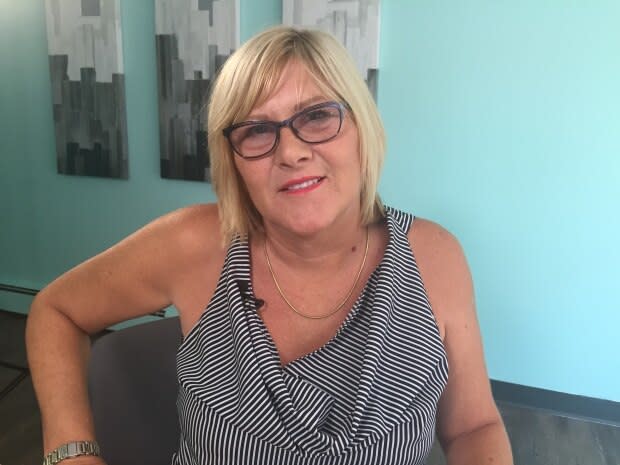Overdose prevention site reopening in new Halifax location
Atlantic Canada's only overdose prevention site will reopen next week in Halifax, this time with extended hours and a location where organizers hope they can reach more people.
The new site, called ReFIX, opens Monday on the bottom level of the Brunswick Street Mission. It will be open Monday to Saturday from 9 a.m. to 2 p.m. AT.
It's just around the corner from its original home below the Direction 180 opioid treatment clinic on Gottingen Street, where it closed in June after its exemption to the Controlled Drugs and Substances Act expired.
"We think that this new location, which is a known hotspot for open use and unsafe injection practices, will be a better-suited spot and will promote more access," said Cindy MacIsaac, the director of Direction 180.
MacIsaac said the site was set up with funding from the United Way, and Health Canada recently granted them a one-year exemption to the Controlled Drugs and Substances Act.
It's being run by a few groups, including Direction 180, the Mi'kmaw Native Friendship Centre, Mainline Needle Exchange and Brunswick Street Mission.

MacIsaac said it was well-known that the old location was a point of contention for the Black Nova Scotian community since it was right next to the historic New Horizons Baptist Church.
Since it was only open three hours a day, MacIsaac said it also wasn't as busy as they thought it would be. Having it located in the same building as the opioid treatment clinic also created a barrier for some people, she said.
Now, with the entrance off a parking lot facing Barrington Street beside the Metro Turning Point men's shelter, the area is set back from the road and people have more privacy.
At the site, people can come in with their own substances and use them in a respectful environment where they can access clean supplies. They can then stay in the area to make sure they are safe, which MacIsaac said is a vital factor since many drug and opioid supplies are contaminated.
Sites vital to ensure people aren't 'needlessly lost'
Eighteen Nova Scotians have died from opioid overdoses so far this year.
"We need to ramp up safe supply, these services and supports, so that people are not needlessly lost," MacIsaac said.
She said while people who use drugs deserve compassion and dignity through harm reduction measures like this, these sites also save huge amounts of health-care dollars.
MacIsaac said they have been proven to reduce the transmission of HIV and Hepatitis C, reduce the risk of overdose and connect people to other supports and services they might need.
Nova Scotia's provincial government has not provided the site any support.
Both MacIsaac and Archie Kaiser, a Dalhousie University law professor, say they are frustrated by this stance.

Kaiser has been an advocate of the site since it opened last year, and said he doesn't understand why the province has not supported such sites as part of their harm reduction strategy.
He said roughly the same number of people die from opioid overdoses every year that also die on the province's roads.
The province reported 72 motor vehicle fatalities in 2019 and 74 in 2018, compared to 57 and 54 overdose-related deaths, respectively.
"I would have thought that the provincial government would have seized the opportunity to at least try to reduce the level of deaths," Kaiser said.
"I think it is from a public health perspective, a cruelly disappointing response."
From 2011 to 2019, annual overdose-related deaths in the province have ranged from a low of 53 to a high of 67.
Province won't commit to supporting overdose prevention sites
In an email, Health Department spokesperson Heather Fairbairn said the province has invested in numerous harm reduction measures.
These include needle distribution, take-home naloxone and opioid use disorder treatment.
"Work is currently underway to understand more about other harm reduction needs in Nova Scotia. In doing so, we will be able to make an informed decision on how best to proceed" around supporting overdose prevention sites, she said.
MORE TOP STORIES

